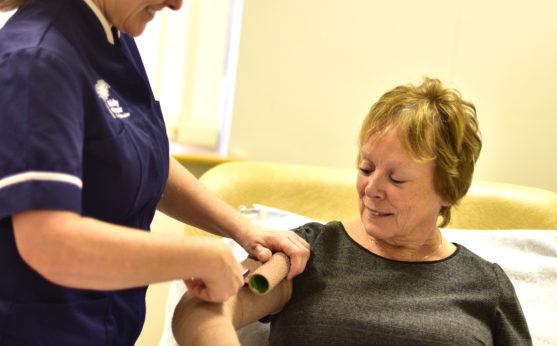What is Lymphoedema?
Each week we welcome patients to our lymphoedema clinic, which provides specialist treatment and advice.
Put simply, it’s a condition which affects the lymphatic system; the process by which we filter and drain waste fluid from our bodies. If the lymphatic system is unable to cope with the drainage of this ‘lymph’ it can cause the pooling of fluid in the tissues beneath the skin. This can lead to swelling, usually in the arms and legs, but other parts of the body can be affected too.
There are two types of Lymphoedema: Primary, which is often hereditary and runs in families and Secondary, which is usually the result of lymph nodes being scarred, blocked or removed following cancer treatment, trauma, surgery or infection.
The good news is that there are several ways that Lymphoedema can be treated
- Taking care of the skin
- Exercise
- Compression using special bandages and hosiery (this may be long term)
- Lymphatic drainage
Patients may need one treatment or a combination of all of them, either all at once or at different times. Lymphoedema also requires daily self-management and our nurses can provide patients with the information they need to understand and effectively manage their symptoms
Each year around 250 people are referred to our Lymphoedema service


